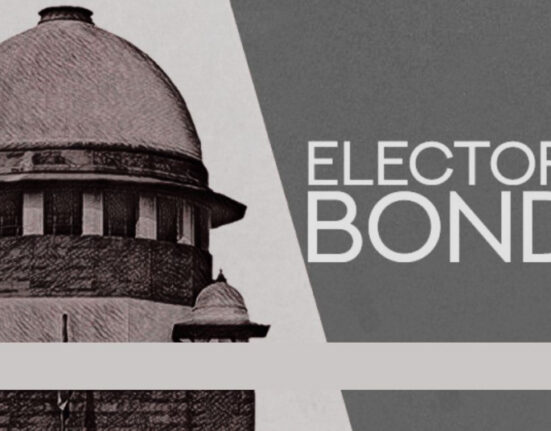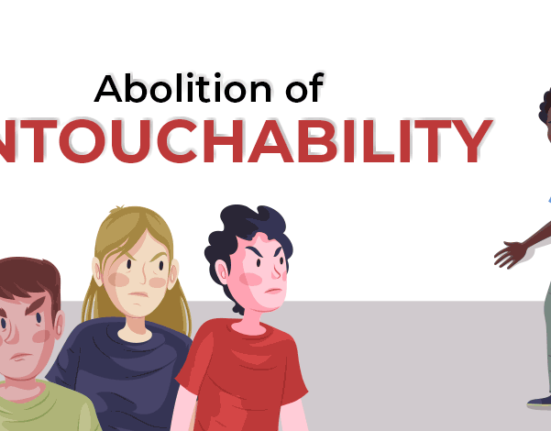Anshika Jaswal, a 3rd-year law student at VES College of law (Mumbai) has written this article “Right to Privacy under Indian Constitution“.
Introduction: What is the Right to Privacy?
The right to privacy is a fundamental human right that refers to an individual’s right to keep their personal life private and free from interference or intrusion by others, including the government and other organizations. It encompasses various aspects, such as personal autonomy, informational privacy, and bodily integrity. It is considered a crucial component of individual liberty and dignity.
The right to privacy is recognized by various international human rights treaties and many national constitutions. In India, it has been declared as a standalone fundamental right by the Supreme Court. In today’s world, where personal data is often shared with various entities, the right to privacy has become more critical.
Right to Privacy under Article 21 of the Indian Constitution
The right to privacy is a fundamental right recognized by the Indian Constitution. In India, the right to privacy was initially recognized as an intrinsic part of the right to life and personal liberty guaranteed under Article 21 of the Constitution. However, in August 2017, the Supreme Court of India in the landmark case of Justice K. S. Puttaswamy (Retd.) v. Union of India[1] declared that the right to privacy is a standalone fundamental right under the Constitution, which encompasses various facets of privacy such as informational privacy, bodily integrity, and decisional autonomy.
The right to privacy is a crucial right in today’s digital age where individuals share vast amounts of personal data with various entities, including governments, corporations, and individuals. The Indian government has enacted several laws to protect the right to privacy of individuals. Such as the Information Technology Rules 2011, and the Personal Data Protection Bill, 2019. It is currently pending before the Indian Parliament. Overall, the right to privacy in India is considered an essential component of individual liberty and autonomy. It is protected by both the Constitution and various laws.
Why is it Important?
The Right to Privacy is an important human right that is essential for the protection of personal autonomy and freedom. It is recognized as a fundamental right in many national and international legal frameworks. Privacy allows individuals to have control over their personal information, including their thoughts, beliefs, and personal preferences.
It provides individuals with the freedom to make choices without fear of judgment or unwanted interference from others. Privacy also protects individuals from unwanted surveillance, intrusion, and harassment, ensuring their safety and security. The Right to Privacy is particularly important in the digital age, where personal data is increasingly collected, processed, and shared by governments, businesses, and other organizations.
Without adequate privacy protections, individuals can be subjected to data breaches, identity theft, and other forms of cybercrime. Moreover, the Right to Privacy is closely connected to other fundamental human rights, such as freedom of expression, association, and assembly. It allows individuals to freely express themselves without fear of reprisals or persecution. In summary, the Right to Privacy is essential for the protection of personal autonomy, individual freedom, and the maintenance of a democratic society.
Evolution of the Right to Privacy
The evolution of the right to privacy is a fascinating journey that spans centuries. It involves many legal and social developments. The concept of privacy can be traced back to ancient civilizations such as Greece and Rome, where individuals were expected to keep their personal affairs private. In the United States, the right to privacy was first recognized in the case of Warren and Brandeis v. New York Times Co Article[2]. The case dealt with the unauthorized publication of a private letter. The Supreme Court recognized the need for individuals to have a right to privacy in their personal affairs.
In the 1960s, the right to privacy took on a new dimension with the rise of the civil rights movement and the feminist movement. These movements sought to expand the definition of privacy to include the right to personal autonomy, freedom of choice, and control over one’s own body. In the 1970s, the Supreme Court of the US expanded the right to privacy in cases such as Roe v. Wade[3], which recognized a woman’s right to have an abortion, and Griswold v. Connecticut[4], which recognized the right of married couples to use birth control.
Evolution of the Right to Privacy under Indian Constitution in India
The evolution of the Right to Privacy in India has been a gradual process, spanning several decades. Here are some key milestones in the history of the Right to Privacy in India:
M.P. Sharma & others v/s Satish Chandra & others[5] and Kharak Singh v/s State of Uttar Pradesh[6]:
These two cases dealt with the question of whether the Right to Privacy was a fundamental right under the Indian Constitution. In both cases, the Supreme Court held that there was no such right.
Gobind v. State of Madhya Pradesh[7]:
The Supreme Court held that the Right to Privacy was a fundamental right under Article 21 of the Indian Constitution. The Court also held that the Right to Privacy included the right to be left alone, the right to be free from unwanted publicity, and the right to lead a peaceful and dignified life.
R. Rajagopal v. State of Tamil Nadu[8]:
In this case, the Supreme Court held that the Right to Privacy also included the right to protect one’s reputation. The Court also held that the Right to Privacy could be limited in certain circumstances, such as in the interest of national security or public order.
PUCL v. Union of India[9]:
In this case, the Supreme Court held that telephone tapping violated the Right to Privacy unless it was done in accordance with the law and with adequate safeguards.
Justice K.S. Puttaswamy (Retd.) v. Union of India[10]:
In this case, the Supreme Court held that the Right to Privacy was a fundamental right under the Indian Constitution. The Court held that the Right to Privacy was intrinsic to the Right to Life and Personal Liberty under Article 21. The Court also held that the Right to Privacy protected personal autonomy and decision-making, as well as the right to be free from surveillance and intrusion.
These cases and others have helped to shape the evolution of the Right to Privacy in India. They have established it as a fundamental right under the Indian Constitution. The evolution of the right to privacy has been a long and complex journey, with many legal and social developments. The right to privacy is a fundamental right that has been recognized by courts and governments around the world. Its protection is also becoming increasingly important in the digital age.
Steps by the Government to Protect the Right to Privacy
The Information Technology Act 2000
The IT Act of 2000 is an important piece of legislation in India that governs electronic transactions and communication. One of the key aspects of the Act is the right to privacy for individuals in the digital space. The Act recognizes the right to privacy as a fundamental right that needs to be protected in the online world. Section 43A of the Act requires companies to implement reasonable security practices to protect sensitive personal data from unauthorized access or disclosure. This includes the use of encryption, firewalls, and other security measures to prevent data breaches.
In addition, the IT Act provides individuals with the right to access and correct their personal information held by companies. Section 43B requires companies to maintain reasonable security procedures and practices for the protection of personal information. Individuals have the right to know what information is being collected about them, how it is being used, and who it is being shared with. The Act also criminalizes the unauthorized access, use, or disclosure of personal information. Section 72A of the Act makes it a punishable offense for any person who, while providing services under a lawful contract, has secured access to any personal information and discloses it without the consent of the person concerned. Overall, the IT Act of 2000 recognizes the importance of protecting the privacy of individuals in the digital space. It provides measures to safeguard personal information from unauthorized access or disclosure.
Right to Privacy Bill 2011
The Right to Privacy Bill, of 2011 is a proposed legislation. It aims to provide individuals in India with a legal framework for the protection of their privacy rights. The bill recognizes that privacy is a fundamental right, which is necessary for the exercise of other rights. It seeks to ensure that this right is protected from infringement by both the state and private entities. It defines privacy as the right to be free from unwarranted intrusion, surveillance, or disclosure of personal information. The bill provides for the establishment of a Privacy Commission. Such Commission will be responsible for overseeing the implementation of the bill and addressing privacy-related complaints.
The bill also sets out various provisions to regulate the collection, storage, and use of personal information by both state and non-state actors. It requires that any data collected should be used only for the purpose for which it was collected. Such data should also be deleted once that purpose has been fulfilled. The bill also requires that any information collected should be kept confidential. It should not be disclosed to third parties without the individual’s consent. The bill recognizes that certain restrictions on privacy may be necessary in the interests of national security, public order, or the prevention of crime. However, it sets out strict criteria for such restrictions, including the requirement that they be proportionate to the harm being prevented and that they be subject to judicial oversight.
Overall, This Bill is an important step towards ensuring that the privacy rights of individuals in India are protected. It recognizes the importance of privacy as a fundamental right. It seeks to strike a balance between the need for privacy and other societal interests.
Information Technology (Reasonable Security Practices and Procedures and Sensitive Personal Data or Information) Rules, 2011
The Information Technology (Reasonable Security Practices and Procedures and Sensitive Personal Data or Information) Rules, 2011 were introduced by the Government of India under Section 43A and Section 79 of the Information Technology Act, 2000. These rules aim to protect the privacy of individuals with regard to their personal data and information. Under these rules, sensitive personal data or information (SPDI) is defined as information that relates to a person’s password, financial information, medical records, biometric information, sexual orientation, or any other information that may affect an individual’s privacy. The rules require companies to obtain consent from individuals before collecting their SPDI and to clearly state the purpose for which it will be used.
Companies are required to ensure that their systems and networks are secure and protected against the misuse of personal data. In case of any unauthorized access or disclosure of personal data, companies are required to promptly inform the affected individuals and take steps to remedy the situation. Additionally, companies are required to appoint a Grievance Officer who will be responsible for addressing any complaints or grievances related to the collection, storage, or use of personal data. Overall, the IT Rules, 2011 aims to protect the privacy of individuals. It ensures that their personal data is collected, stored, and used in a responsible and secure manner.
Personal Data Protection Bill, 2019
The Personal Data Protection Bill, 2019 is a proposed legislation. It aims to regulate the processing of personal data in India. One of the key aspects of the bill is the recognition of the right to privacy as a fundamental right, which was affirmed by the Supreme Court of India in 2017. The bill recognizes the importance of protecting the privacy of individuals and provides various provisions to safeguard the same. It defines personal data as any information that relates to a natural person, which can be used to directly or indirectly identify the person. The bill places the onus of obtaining the individual’s consent before collecting or processing their personal data. The individual has the right to withdraw their consent at any time. The bill also mandates that the data controller must inform the individual about the purpose of collecting the data and the intended recipients of the same.
The bill provides individuals with the right to access their personal data and to request the rectification or erasure of the same. It also recognizes the right to data portability, which allows individuals to transfer their personal data from one data controller to another. The bill mandates that sensitive personal data, such as financial information, health information, and biometric data, must be processed only with the individual’s explicit consent. The bill also provides for the establishment of a Data Protection Authority to regulate the provisions of the bill. In conclusion, the Personal Data Protection Bill, 2019 recognizes the right to privacy as a fundamental right. It also provides various provisions to safeguard the same. The bill places the onus of protecting personal data on the data controller. It provides individuals with various rights to control the processing of their personal data.
Is telephone tapping a violation of the Right to Privacy?
Telephone tapping in India is permissible under the Indian Telegraph Act, of 1885, and The Information Technology (Procedure and Safeguards for Interception, Monitoring, and Decryption of Information) Rules, 2009. However, it can be deemed a violation of the Right to Privacy if it is not conducted in compliance with the law and with sufficient safeguards. The Supreme Court of India has acknowledged that telephone tapping constitutes a significant intrusion into individuals’ privacy. The Court has held that it should only be carried out with the necessary protections to prevent abuse. The Court also stated that telephone tapping is a breach of the Right to Privacy if it is conducted without proper procedure, indiscriminately, or for reasons other than those specified in the law.
In the case of People’s Union for Civil Liberties v. Union of India[11], the Court stipulated that telephone tapping must be authorized by a competent authority, for a specific purpose, limited in duration, and the intercepted material can only be used for the specified purpose. In summary, while telephone tapping is not an absolute violation of the Right to Privacy in India, it can infringe on the right if carried out without compliance with the law and necessary safeguards. The government must ensure that telephone tapping is only conducted for specific purposes, with proper authorization, and sufficient safeguards to prevent misuse.
Enforcement Mechanisms
The right to privacy in India is now a fundamental right that is protected by the Constitution of India. To enforce this right, there are several mechanisms available to individuals in India:
Constitutional remedies:
Individuals can seek constitutional remedies under Article 32 and Article 226 of the Constitution of India. It allows individuals to approach the Supreme Court and High Courts, respectively, for the enforcement of their fundamental rights, including the right to privacy.
Data protection laws:
In addition to the constitutional remedies, India also has data protection laws such as the Personal Data Protection Bill, 2019, which is currently pending in the Indian Parliament. Once passed, this law will provide individuals with specific rights over their personal data. It will also create a regulatory authority to oversee the protection of personal data.
Criminal and civil law remedies:
Individuals can also seek remedies under criminal and civil law. For example, Section 66E of the Information Technology Act, of 2000. It provides for the punishment of offenders who violate the privacy of individuals by publishing or transmitting intimate or sexually explicit material without their consent.
Right to Information Act, 2005:
The Right to Information Act, of 2005, allows individuals to access information held by public authorities. This law also includes provisions to protect personal information from disclosure that could violate an individual’s right to privacy.
Consumer protection laws:
Individuals can also seek remedies under consumer protection laws such as the Consumer Protection Act, of 2019. This law provides for the protection of consumer rights, including the right to privacy, and allows individuals to file complaints against businesses and service providers who violate their privacy rights.
Also Read: Right to Equality Under The Indian Constitution. Click Here!
[1] (AIR 2017) SC 4161
[2] Dec. 15, 1890
[3] 410 U.S. 113 (1973)
[4] 381 U.S. 479 (1965)
[5] (1954 AIR 300)
[6] (1963 AIR 1295)
[7] (AIR 1975) SC 1378
[8] (1994 ) SCC (6) 632
[9] (AIR 1997) SCC 568
[10] (AIR 2017) SCC4161
[11] (1997)







Leave feedback about this